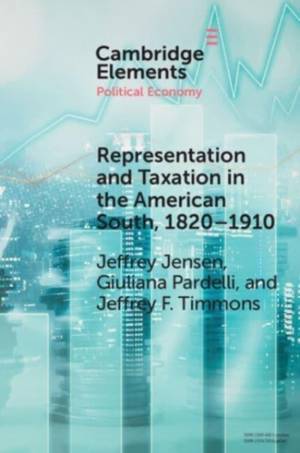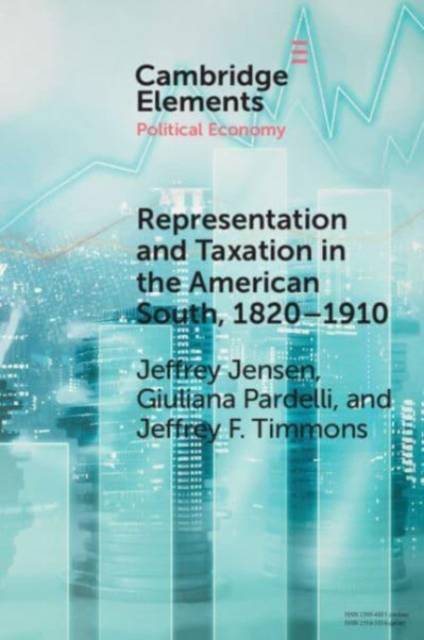
- Afhalen na 1 uur in een winkel met voorraad
- Gratis thuislevering in België vanaf € 30
- Ruim aanbod met 7 miljoen producten
- Afhalen na 1 uur in een winkel met voorraad
- Gratis thuislevering in België vanaf € 30
- Ruim aanbod met 7 miljoen producten
Zoeken
Representation and Taxation in the American South,1820-1910
Jeffrey Jensen, Giuliana Pardelli, Jeffrey F Timmons
€ 104,95
+ 209 punten
Uitvoering
Omschrijving
We explain and document state-level fiscal developments in American Southern states from 1820-1910, focusing on their main source of revenue, progressive property taxes borne primarily by economic elites. The fourteen states in our analysis were characterized by severe economic exploitation of the enslaved and later politically repressed African-descended population by a small rural elite, who dominated the region both politically and economically. While rural elites are thought to be especially resistant to taxation, we offer a set of conditions that explains the emergence of progressive taxation and provides a coherent account of the fiscal development of these states over this period. Using an original, archival data set of annual tax revenues and select expenditure items, we show that the economic interests of these rural elites and the extent of their formal (over)representation played a critical role in shaping the observed fiscal patterns within and across these states over this period. This title is also available as Open Access on Cambridge Core.
Specificaties
Betrokkenen
- Auteur(s):
- Uitgeverij:
Inhoud
- Aantal bladzijden:
- 102
- Taal:
- Engels
- Reeks:
Eigenschappen
- Productcode (EAN):
- 9781009454056
- Verschijningsdatum:
- 22/02/2024
- Uitvoering:
- Hardcover
- Formaat:
- Genaaid
- Afmetingen:
- 152 mm x 229 mm
- Gewicht:
- 308 g

Alleen bij Standaard Boekhandel
+ 209 punten op je klantenkaart van Standaard Boekhandel
Beoordelingen
We publiceren alleen reviews die voldoen aan de voorwaarden voor reviews. Bekijk onze voorwaarden voor reviews.











